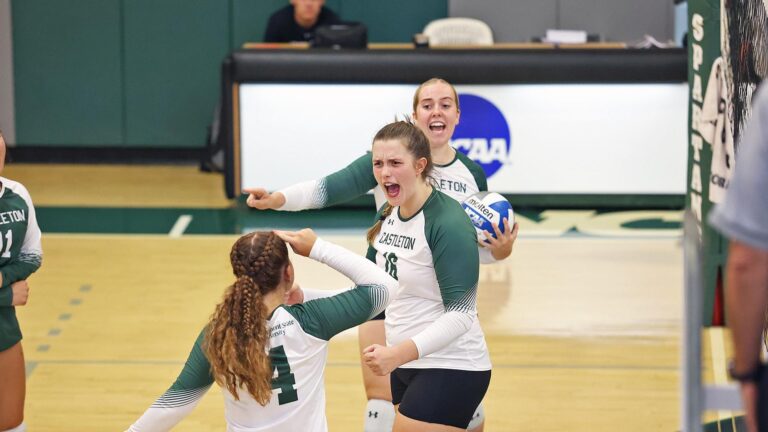World Cup a win for women, but…

Entire nations hold their breath. Tears sting in anticipation. The thrumming intensity of concentration beats as world champions are made.
The 2023 FIFA World Cup ended in unquestionable victory for the Spanish side, though perhaps more relevantly, the unparalleled support for women’s sports etched the event in history. Politically, socially, and economically, this ninth edition of the World Cup rattled the hierarchy underpinning international and professional sports.
Jointly hosted by Australia and New Zealand, the Cup was a rally for women internationally to engage in sports both on and off the field. The Cup launched off the momentum of the #MeToo movement, a fundamental concept that challenged the coaches and administrators from five countries on four continents accused of sexual misconduct, inappropriate behaviour, and rape by players and colleagues, according to the New York Times.
Though despite the inexcusable obstacles placed in front of these teams, the Cup was undoubtably a success. Economically, the 2023 World Cup reported $570 million in revenue, allowing the tournament to break even for the first time.
Importantly, the Australian government under the leadership of Prime Minster Albanese has committed $200 million toward women’s sports, according to The Guardian.
Indeed, as critically noted by Australian soccer fan Martyn Jackson when asked about the future of women’s sports, “is it a one-off? That depends not on whether countries pour money into women’s football/sport, but whether mums and daughters will go out and watch their local leagues and build a grass roots base.”
Securing a grassroots base of mothers and daughters was surely a salient goal of the Cup, given the low cost of tickets. Sara Al-Shameri, coach and social media manager of the Sydney University Soccer Football Club, recognised the economic savings.
“The most striking difference for me (compared to the men’s World Cup) was how cheap the tickets were,” she said. Tickets that cost $20 (AUD) for category C seats and $80 (AUD) for category B seats for the World Cup Final, reflects both an effort to engage a broader audience and reveals the staggering economic differences between men’s and women’s soccer.
Al-Shameri continued to explain that the “men’s tickets are so expensive, so you really need to know football or like it to some degree to go and watch the game.”
Certainly, it could be suggested that the economic reality of the Cup simply reiterates the underfunded and undersupported political landscape of women’s sports. However, when asked about the differences between the men’s and women’s World Cup, Jackson commented, “Very Few.”
“It was very competitive and committed. However, many international teams struggled financially to get a commitment of money from their FIFA committees,” Jackson said.
While critics of women’s sports site the physiological differences between the sexes, the World Cup undercut this premise as women displayed technical precision and impressive strength. In fact, England’s Chole Kelly’s winning penalty again Nigeria earned the title of the fastest shot in the Women’s World Cup. Equally as notable, the 69mph penalty outpaced the most powerful strike from the 2022-23 Premier League campaign made by West Ham’s Said Benrahma.
Where physiological differences do exist, the women compensated sufficiently with tact and skill. Soccer fan and Fraser Park soccer player Samuel Jackson said “it has been clear that coaches in fact have more of an influence tactically over the women’s game rather than men. This is because the women’s game is slower allowing for tactics the come into play rather than physical attributes.”
The impressive strength and skill of each team allowed spectators to view the event not “as a women’s tournament but just as a pure football tournament,” Castleton men’s soccer player Charlie Cisneros said.
While fierce competition defined the World Cup and contributed to great soccer, players and teams also sought to collaboratively dismantle the institutionalised inequality rampantly displayed throughout the tournament. Al-Shameri recognised the chasm between men’s and women’s soccer.
“A prime example of how we have a long way to go is how Spain won the World Cup and rather than celebrating it and having the focus on how well they played, the focus was on how the head of the Spanish federation kissed that girl on the lips as she was accepting her medal,” she said, questioning rhetorically, “would this ever happen in a men’s competition?”
A similar incidence of women’s solidarity was noted by Martyn Jackson, who revealed his favourite moment of the Cup.
“I think the English team telling the photographers to fuck off away from the Nigerian goalkeeper in the quarter finals who let the last penalty in and give her some privacy,” he said.
Certainly, the constant growth of women’s sports shines an optimistic light on the future of the women’s FIFA World Cup.
Al-Shameri revealed “these two blokes renovating our bathroom, I overheard them talking about the game (semi-finals) and how they’re looking forward to it – they even said it’s bigger than an NRL State of Origin (an intense annual Australian Rugby series).”








